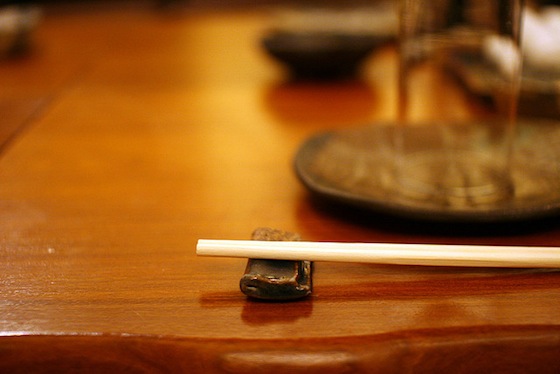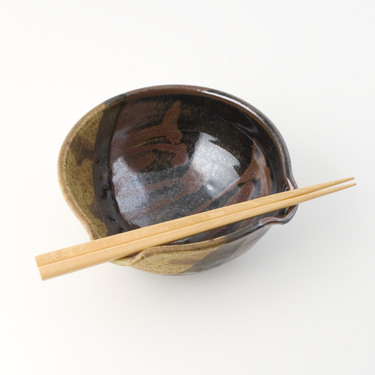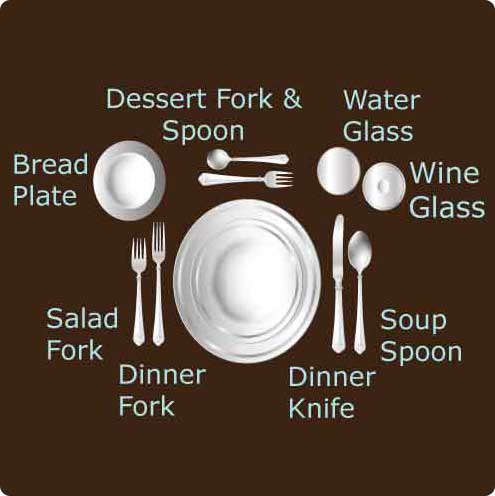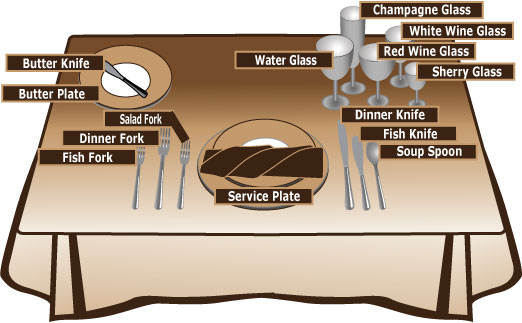



The Top Trends in Steam Baths and Showers Today Dec 18, 2024


How to Keep an Active Lifestyle for Seniors Dec 11, 2024


The Restaurant That Sued Its Customers: The Reputation Fallout from a Legal Battle Over Yelp Reviews

The Restaurant That Sued Its Customers: The Reputation Fallout from a Legal Battle Over Yelp Reviews Nov 29, 2024

8 Ways You're Not Following Dining Rules Properly
Apr 04, 2014 20:44
Not everyone knows the proper dining etiquette, but that doesn't mean you have to be one of them. For example, which utensil do you use first, or how should you position your plate and utensils to signal you're done with your meal? While you may already know some, here's a list of common mistakes you've been doing.
1. Rubbing your chopsticks together is considered rude? Doing that shows that you think the establishment is low quality and that their utensils are cheap.

2. Never rest your chopsticks across your bowl. It is considered rude.

3. How to send signals to wait-staff by positioning your utensils.


5. Don't hold your knife up like a dagger. And don't place the cutlery on the table once you've picked them up.


7. This is what a FORMAL dining setting looks like:

8. Pass the salt and pepper together. Not separately.

1. Rubbing your chopsticks together is considered rude? Doing that shows that you think the establishment is low quality and that their utensils are cheap.

2. Never rest your chopsticks across your bowl. It is considered rude.

3. How to send signals to wait-staff by positioning your utensils.

4. Standing your chopsticks in your rice bowl is only done for the dead.

5. Don't hold your knife up like a dagger. And don't place the cutlery on the table once you've picked them up.

6. This is an INFORMAL dining setting:

7. This is what a FORMAL dining setting looks like:

8. Pass the salt and pepper together. Not separately.


In a world flooded with fast fashion and trend-chasing designs, one Arab brand dares to slow down and look deeper — into memory, into meaning, and into the eyes of a mother.SeeMe, a luxury fashion and accessories brand based in Amman, Jordan, is not just another name in the fashion scene. It’s a personal, artistic journey born out of love, grief, and identity — a brand that literally sees you. Read more

Let’s get one thing straight—sarees are never going out of style. What does evolve, though? The drape. From grandmom-core to fashion-week realness, diff styles of saree draping are having a moment (again). Whether you're learning to pleat from YouTube or remixing the pallu with boots and a belt, this six-yard stunner continues to be the ultimate canvas of expression. Read more

Is your anniversary on the horizon? It’s undoubtedly a memorable occasion that you should celebrate grandly. You don’t always have to go the whole hog; sometimes a cute gesture such as flowers, a handwritten note, and even a delicious anniversary cake works wonders. But how do you choose the perfect cake to delight him/her on the big day? Here are some choices worth considering in this case. Read more
LIFESTYLE
Mar 19, 2025 21:34
Copyright © Fooyoh.com. All rights reserved. User Agreement | Privacy Policy | Contact us
| Advertising
| About us
| Careers

















































